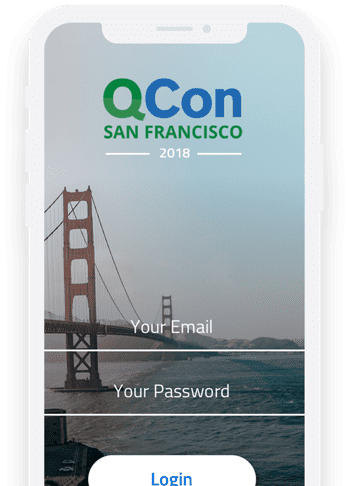Presentation: Building Resilience in Production Migrations
Share this on:
What You’ll Learn
-
Hear about resilience, why it is important, what Netflix Billing Infrastructure is doing to avoid taking downtime.
-
Learn about complex migrations that took place at Netflix, at scale and how we avoided downtime, while migrating customer’s billing state.
-
Find out about some of the tools and technologies Netflix Engineering used for these migrations.
Abstract
How do you migrate stateful systems with confidence? Especially when downtime is not an option? Netflix Billing Infrastructure needs to be up 24/7 to support 130+ million global customers. Billing services are the source of truth for a customer’s billing state which changes as customers apply gift cards, update their Method of Payment or are just charged every month. We want this experience to be seamless and accurate anytime, day or night, so our databases are constantly in action, with no possible downtime windows.
We have succeeded in multiple major rewrites. In the first one, we migrated billions of rows from Oracle in our data center to MySQL AWS Cloud. Post that, we also rewrote Netflix Balance Service that manages gifts and promotions redeemed by customers. In the recent one, we rewrote our legacy invoice processing system and seamlessly transitioned from a MySQL solution to Cassandra. All these efforts involved different strategies that helped us achieve these with a flip of a switch and without anyone realizing that Netflix had been doing major overhauls of its Billing Infrastructure. We will share our migration stories and what helped us build resilience.
From this talk, attendees will learn:
- Baseline Considerations to be thought through in migrations.
- Variations and aspects of achieving zero downtime especially around state migration.
- Tools and technologies that can be helpful.
What's the focus of the work that you do today?
I lead Billing Infrastructure Engineering at Netflix. We build the infrastructure that helps Netflix collect charges from its members. Part of that is to determine who should be charged and how much through our systems. We also hold all the gift codes and balances and track them. We also support major customer workflows. Our services participate in gift redemptions, Method of payment updates, cancellation requests etc. We also do financial reporting.
What’s the motivation for this talk?
To get a bit of why resilience is important specifically for us. We believe that for systems like us, we do our best when we are not visible, when nobody notices. It's a topic very close to my heart, how to build resilient systems, how to not go down. Our infrastructure shouldn't be the reason people cannot watch what they wanted to. The motivation of the talk is primarily to share some of the things that we have seen over the years. Since I joined Netflix we've done major overhaul and nobody has noticed that infrastructure has been shifting. These kind of projects have a thought process which starts even before we start the project, how to manage the resiliency, not going down. We have some interesting stuff to share that other people can benefit from as well.
What are some of the specific things that will be in this talk?
There are two aspects when rewriting a system. One is not taking a downtime for the deployment of your code. And second is not taking a downtime to migrate the state from one store to other store. The talk is about how do you do these steps without being noticed. And we will share the stories of how we migrated at scale, the things we did, what helped us. How did we build confidence into our migration?,. How should you think about it when you want to not really impact customers, the different aspects of that.
What do you want someone who comes to your talks to walk away with?
My goal is for people to learn some of the tools and technologies that we have used, if they can find something similar in their world, and how possibly they can break down these bigger tasks into smaller buckets and be able to focus and solve it. Because every system that's running today around the world will need a rewrite at some point. I want people to walk away with confidence from our experience to solve a very common but complex problem in software. I'm hoping they'll learn some tips and tricks.
Similar Talks






Tracks
Monday, 5 November
-
Microservices / Serverless Patterns & Practices
Evolving, observing, persisting, and building modern microservices
-
Practices of DevOps & Lean Thinking
Practical approaches using DevOps & Lean Thinking
-
JavaScript & Web Tech
Beyond JavaScript in the Browser. Exploring WebAssembly, Electron, & Modern Frameworks
-
Modern CS in the Real World
Thoughts pushing software forward, including consensus, CRDT's, formal methods, & probabilistic programming
-
Modern Operating Systems
Applied, practical, & real-world deep-dive into industry adoption of OS, containers and virtualization, including Linux on Windows, LinuxKit, and Unikernels
-
Optimizing You: Human Skills for Individuals
Better teams start with a better self. Learn practical skills for IC
Tuesday, 6 November
-
Architectures You've Always Wondered About
Next-gen architectures from the most admired companies in software, such as Netflix, Google, Facebook, Twitter, & more
-
21st Century Languages
Lessons learned from languages like Rust, Go-lang, Swift, Kotlin, and more.
-
Emerging Trends in Data Engineering
Showcasing DataEng tech and highlighting the strengths of each in real-world applications.
-
Bare Knuckle Performance
Killing latency and getting the most out of your hardware
-
Socially Conscious Software
Building socially responsible software that protects users privacy & safety
-
Delivering on the Promise of Containers
Runtime containers, libraries, and services that power microservices
Wednesday, 7 November
-
Applied AI & Machine Learning
Applied machine learning lessons for SWEs, including tech around TensorFlow, TPUs, Keras, PyTorch, & more
-
Production Readiness: Building Resilient Systems
More than just building software, building deployable production ready software
-
Developer Experience: Level up your Engineering Effectiveness
Improving the end to end developer experience - design, dev, test, deploy, operate/understand.
-
Security: Lessons Attacking & Defending
Security from the defender's AND the attacker's point of view
-
Future of Human Computer Interaction
IoT, voice, mobile: Interfaces pushing the boundary of what we consider to be the interface
-
Enterprise Languages
Workhorse languages found in modern enterprises. Expect Java, .NET, & Node in this track






